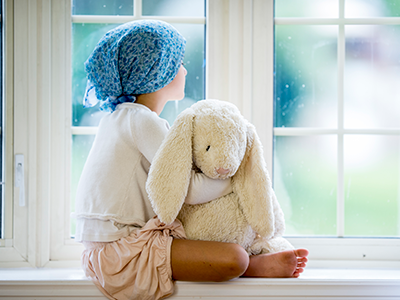I have 50/50 custody of my 3.5-year-old son. Since birth I have had his grandmother around whenever he is with me. She has become like a mother to him, and they are very close. She is going out of state next week and will be gone for a few months. I know it will be very tough on my toddler son and I would like to know how to help him with this transition. Please tell me as many suggestions as you have. This age is a critical time in his development, and I am really worried about this.
First of all, I think it’s great that you are thinking about how to support your son as you and he approach this upcoming transition. If I were working with you and your son in a clinical setting, I would want to hear more about how he has been doing more generally and whether you think there is anything about his history that makes you particularly concerned about how the separation from his grandmother might impact him. For example, you noted that you have shared custody — has he already gone through transitions (i.e., in terms of separations from caregivers)? I would also want to hear more about how he is doing with the shared custody arrangement and associated transitions. If I were working with him, I would want to learn more about how prior separations or any major life transitions (such as moving homes) have affected him in the past, as well as what strategies seemed to help him with any past challenges.
Although different children deal with these types of challenges in different ways, I think most children benefit from having information about upcoming transitions ahead of time so that they can “cope ahead.” For example, you can talk with your son (in a developmentally appropriate way) about his upcoming separation from his grandmother. Research has shown that, just like adults, children fare better emotionally when they are able to anticipate potential challenges in their lives, even if that might make him sad in the present day. Unfortunately, many families avoid talking about the separation from loved ones ahead of time, sometimes even lying to the children and saying that their loved one will be back soon, to avoid causing anticipatory distress. With your son, you can talk to him about his grandmother’s upcoming departure, where she will be going, how long she is likely to be gone and how the separation will affect (and not affect) his day-to-day life. You can provide him with a sense of stability by focusing on all the things that will not be changing, such as by talking about how you are not going anywhere and that he will still be coming to your house on the same schedule as always. In general, you should try to avoid too many changes at once. You can also reassure him by telling him that you have plans to talk with his grandmother on the phone or via Zoom/FaceTime — you can even do a trial run to practice for the virtual visits.
You can also lower your anticipatory anxiety by “coping ahead” for the types of challenges that might arise. Some kids tend to act out in response to major changes in their lives, like engaging in limit-testing behavior or aggressive behavior. Other kids tend to “act in,” such as by withdrawing socially, eating less, or having sleeping issues. If you can prepare yourself for this type of a response, it might not be so upsetting for you when he starts developing these behaviors. You could also plan for how you are going to address these issues if they come up.
The good news is that most kids are pretty resilient when it comes to separations like this. The most important thing for children of this age is that they have at least one close attachment figure (such as a parent or other caregiver) who can help them feel safe and secure, even when confronted with other changes in their lives. As long as he has at least one stable, consistent caregiver who loves and supports him, there is no reason to believe that a separation from his grandmother will have a lasting negative impact on his psychological wellbeing. For that reason, it will be important to monitor your own stress level. If not having grandma around adds to your emotional workload (i.e., more childcare responsibilities for you), please be sure to take care of yourself. Don’t be afraid to ask other family members or friends for help, as taking care of a 3-year-old on your own is a lot of work (even if it’s only 50% of the time).
 https://riseandshine.childrensnational.org/wp-content/uploads/2025/05/child-having-tantrum-feature.jpg
300
400
webteam
https://riseandshine.childrensnational.org/wp-content/uploads/2017/11/childrens_riseandshine_logo.jpg
webteam2025-05-07 15:54:412025-05-07 16:19:29Helping autistic children manage big feelings
https://riseandshine.childrensnational.org/wp-content/uploads/2025/05/child-having-tantrum-feature.jpg
300
400
webteam
https://riseandshine.childrensnational.org/wp-content/uploads/2017/11/childrens_riseandshine_logo.jpg
webteam2025-05-07 15:54:412025-05-07 16:19:29Helping autistic children manage big feelings





















Leave a Comment
Want to join the discussion?Feel free to contribute!